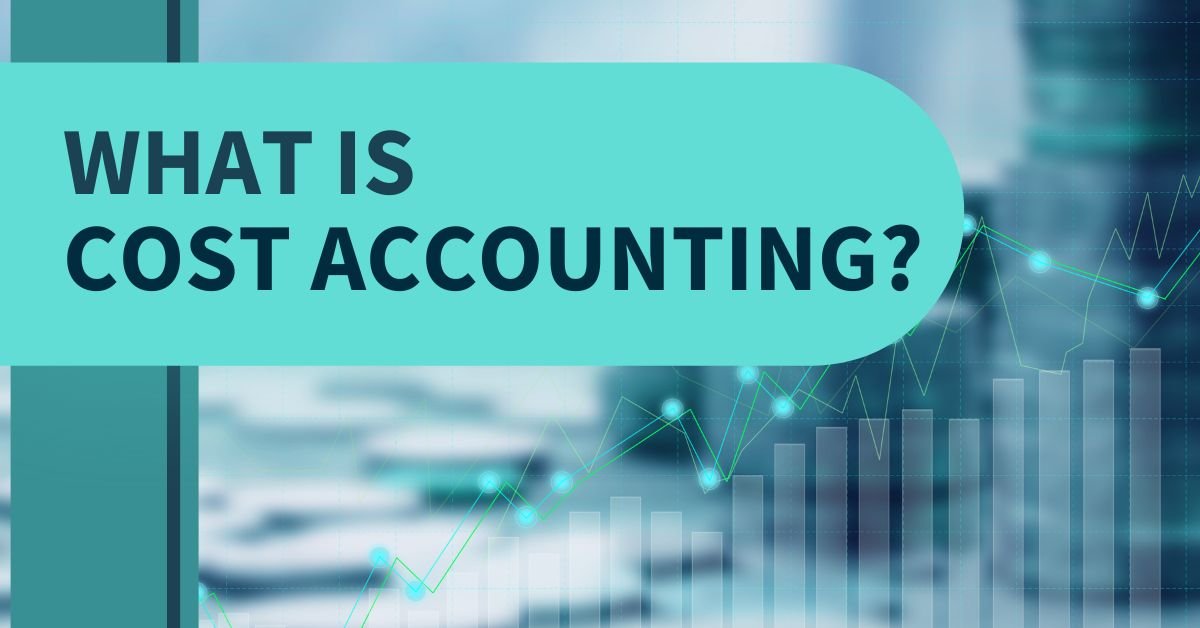Cost accounting is a crucial aspect of financial management for businesses of all sizes. It provides insights into various costs associated with producing goods or services, helping businesses make informed decisions to improve efficiency and profitability. In this article, we’ll delve into the fundamentals of cost accounting, exploring its definition, key components, differences from financial accounting, and its pros and cons.
What is Cost Accounting?
Cost accounting refers to the process of tracking, recording, and analyzing costs associated with production, operations, or activities within a business. It involves the classification, allocation, and understanding of various costs to facilitate decision-making, budgeting, and performance evaluation. Essentially, cost accounting aims to determine the true cost of producing goods or services, helping businesses optimize their operations and maximize profits.
Some Cost Types:
- Direct Costs: These are costs directly attributable to the production of goods or services. Examples include raw materials, labor, and manufacturing overhead.
- Indirect Costs: Also known as overhead costs, these are expenses not directly tied to specific products or services but necessary for overall operations. Examples include rent, utilities, and administrative salaries.
- Fixed Costs: Costs that remain constant regardless of production levels, such as rent and salaries.
- Variable Costs: Costs that fluctuate based on production levels, such as raw materials and direct labor.
- Semi-Variable Costs: Costs that have both fixed and variable components, like utilities or maintenance expenses.
Main Costs Analyzed by a Cost Accountant
Cost accountants analyze various costs to provide insights into operational efficiency and profitability. Some key costs they focus on include:
- Product Costs: The costs associated with producing a specific product, including direct materials, direct labor, and manufacturing overhead.
- Period Costs: Expenses not directly tied to the production process, such as selling and administrative expenses.
- Opportunity Costs: The potential benefits foregone by choosing one alternative over another.
- Sunk Costs: Costs that have already been incurred and cannot be recovered, regardless of future decisions.
Cost Accounting Vs. Financial Accounting
Purpose:
- Cost Accounting: Primarily focuses on providing internal management with detailed insights into the costs associated with producing goods or services. It helps businesses make informed decisions regarding pricing, budgeting, and resource allocation.
- Financial Accounting: Primarily concerned with external reporting requirements, such as preparing financial statements for investors, creditors, regulators, and other stakeholders. It provides a comprehensive overview of a company’s financial performance and position.
Scope:
- Cost Accounting: Focuses on analyzing and allocating costs related to specific products, departments, projects, or activities within the organization. It helps businesses understand the true cost of production and identify areas for cost reduction or optimization.
- Financial Accounting: Encompasses all financial transactions and activities of a business, including revenue, expenses, assets, liabilities, and equity. It provides a broader perspective on the overall financial health and performance of the organization.
Time Horizon:
- Cost Accounting: Often focuses on short-term planning and decision-making, analyzing costs and performance over specific periods, such as weeks, months, or quarters. It helps businesses make tactical decisions to improve efficiency and profitability in the near term.
- Financial Accounting: Typically focuses on long-term reporting and analysis, providing historical and prospective financial information over extended periods, such as fiscal years. It helps stakeholders assess the company’s financial stability, growth prospects, and investment opportunities over time.
Regulatory Requirements:
- Cost Accounting: Generally not subject to specific regulatory standards or reporting requirements, as its primary purpose is internal management decision-making. However, it may be influenced by industry standards and best practices.
- Financial Accounting: Subject to strict regulatory standards and reporting requirements, such as Generally Accepted Accounting Principles (GAAP) or International Financial Reporting Standards (IFRS). Compliance with these standards ensures consistency, transparency, and comparability in financial reporting across organizations.
Users:
- Cost Accounting: Used by internal stakeholders, such as managers, executives, and department heads, to evaluate performance, control costs, and make strategic decisions. It provides detailed insights tailored to the needs of management for planning and decision-making purposes.
- Financial Accounting: Used by external stakeholders, including investors, creditors, analysts, regulators, and the general public, to assess the financial health, performance, and stability of the organization. It provides standardized financial reports and disclosures for external communication and decision-making.
Advantages of Cost Accounting
Cost accounting offers several benefits for businesses:
- Better Decision Making: Provides accurate cost information to make informed decisions regarding pricing, product mix, and resource allocation.
- Cost Control: Helps identify cost-saving opportunities and areas of inefficiency, leading to improved cost management.
- Performance Evaluation: Enables businesses to evaluate the performance of departments, products, or projects based on their contribution to overall profitability.
- Budgeting and Planning: Facilitates the development of realistic budgets and forecasts by analyzing historical cost data and trends.
Disadvantages of Cost Accounting
Despite its advantages, cost accounting also has limitations:
- Complexity: Implementing and maintaining a cost accounting system can be complex and time-consuming, requiring specialized knowledge and resources.
- Subjectivity: Certain cost allocations and estimations involve subjective judgments, which may lead to inaccuracies or biases.
- Costly: The cost of implementing and operating a comprehensive cost accounting system may outweigh the benefits for small businesses with limited resources.
- Focus on Short-Term Results: Cost accounting may prioritize short-term cost reduction over long-term strategic goals, potentially neglecting investments in innovation and growth.
Conclusion:
Cost accounting plays a vital role in helping businesses understand and manage their costs effectively. By providing insights into various cost components and analyzing their impact on profitability, cost accounting empowers businesses to make informed decisions, improve efficiency, and achieve their financial objectives.
FAQs
Why is cost accounting important for my business?
It helps you identify cost-saving opportunities, improve budgeting and planning, and enhance profitability by understanding the true costs of your products or services.
What are the main types of cost accounting?
- Standard Costing: Compares standard costs to actual costs.
- Activity-Based Costing (ABC): Allocates overhead based on activities that drive costs.
- Job Order Costing: Tracks costs for specific jobs or batches.
- Process Costing: Used for continuous production processes.
How does cost accounting differ from financial accounting?
Cost accounting focuses on internal cost control and decision-making, while financial accounting is geared toward external reporting and compliance with accounting standards.
How can cost accounting help with pricing decisions?
By understanding the total cost of production, you can set prices that cover costs and ensure profitability.
What software tools are commonly used for cost accounting?
Popular tools include QuickBooks, SAP, Oracle, and specialized cost accounting software like CostPerform and Prophix.
Read More:
How do outsourced accounting services worked?
Rise of Remote and Outsourced Accounting: How COVID-19 Changed the Way We Work







